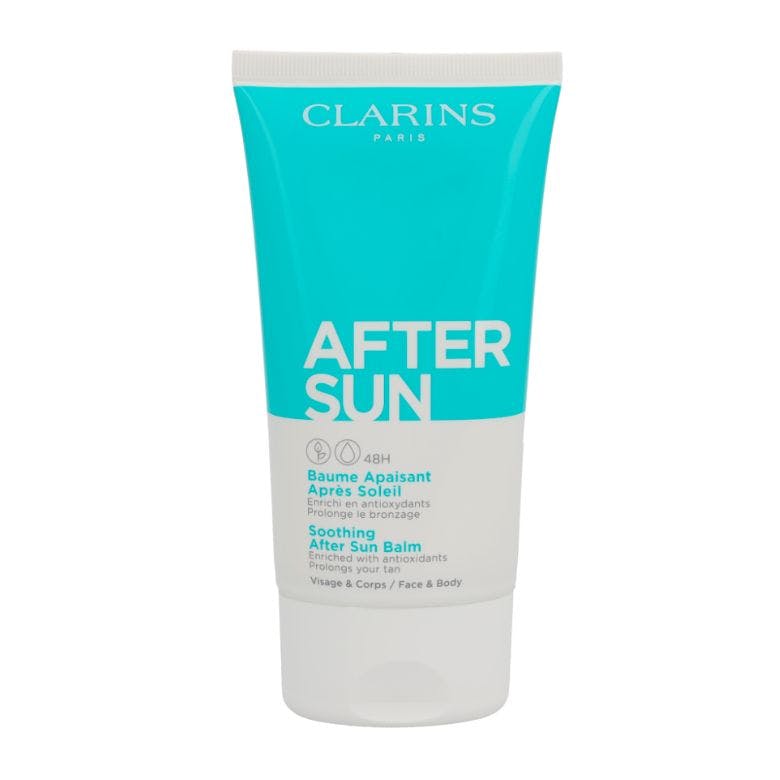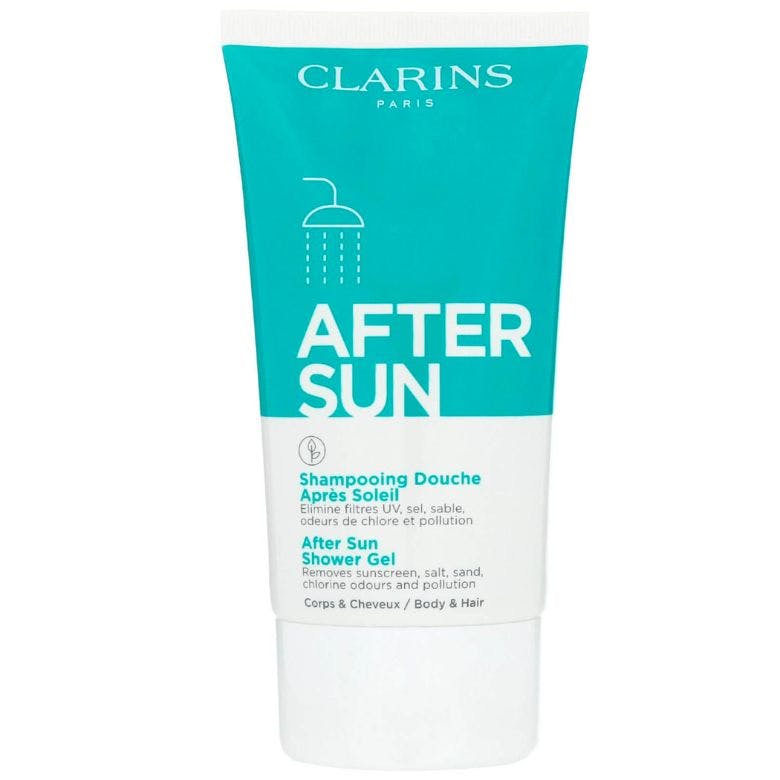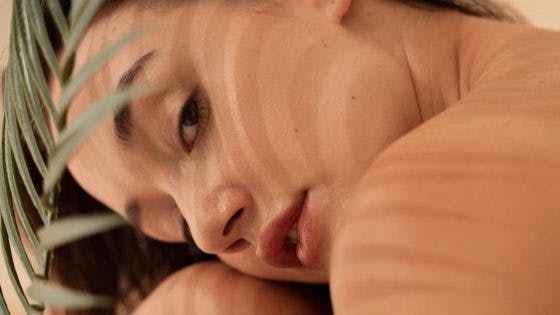Is Aloe Vera Good For Skin? We Uncover Its Benefits Here
7 minutes read
Despite its reputation as a skincare powerhouse, you’d be forgiven for wondering if aloe vera truly lives up to the hype. Could it really be such a do it all ingredient that targets skin conditions from skin ageing and acne to sensitivity and everything in between? Beauty Daily speaks to Dr Sophie Shotter to explore why this multitasking succulent has become a much-loved ingredient.

What is aloe vera?
Aloe vera is a succulent plant that originates from North Africa. Its use in skincare and medicine dates back centuries, with ancient civilisations like the Egyptians and Greeks recognising its therapeutic properties. “The aloe vera plant has fleshy, spiky leaves, and its’ outer green layer encases an innermost layer that is full of mucopolysaccharides and water, which are very hydrating to the skin,” Shotter explains. This plant has stood the test of time and still features as a main ingredient in many skincare products today.
What does aloe vera contain?
The secret to aloe vera’s potency lies in its composition. Within its fleshy leaves, aloe vera harbours an impressive array of active chemicals and nutrients that work wonders for the skin. This plant is packed with vitamins, minerals, enzymes, amino acids, and antioxidants, all of which contribute to its beneficial effects.
Benefits of aloe vera for the face
Aloe vera is a natural moisturiser
Dry, lacklustre skin? Aloe vera to the rescue! Acting as a natural humectant, aloe vera draws in moisture from the environment and helps seal it into your skin – so you can bid farewell to dry patches and say hello to a radiant, well-hydrated complexion.
Aloe vera has anti-inflammatory properties
Calming irritated skin is one of aloe vera’s superpowers. “Skin inflammation can be caused by all sorts of triggers, but the common theme is an immune response in the skin,” Shotter explains. “Inflamed skin will be red, sore and warm to the touch, and some people may develop hives or inflammatory skin conditions which present with plaques, papules and pustules (such as rosacea and acne),” she adds. This is where aloe vera can work wonders as its anti-inflammatory properties help reduce redness, soothe irritation, and provide relief for sensitive skin.
Aloe vera is non-irritating
For those who would characterise their skin as sensitive on a daily basis, finding gentle and effective skincare products can be a challenge. Luckily, aloe vera comes out on top in this area. It is known for its non-irritating and soothing nature, making it a good choice for even the most delicate skin types.
Aloe vera helps with insect bites
Look no further if you’re on the hunt for some much-needed relief from pesky insect bites, as this plants’ soothing properties can alleviate the itching, redness, and swelling they cause. Simply apply a dab of aloe vera gel to the affected area for some sweet relief and be sure to keep this superhero treatment in your skincare arsenal.
Aloe vera for hair
Did you know that aloe vera can work wonders for your hair too? Beyond its benefits for the face and body, aloe vera can also help to nourish and condition your locks. Its moisturising properties can add shine, reduce dandruff, and promote a healthy scalp.
Aloe vera treats sunburns
Aloe vera is key to rescuing scorched skin, which is why it’s often found in many after sun products. “It doesn’t just help to hydrate the skin, but contains vitamins C and E which are crucial for helping to soothe, heal and provide antioxidants to the skin, too,” explains Shotter.
Not only that, “another compound found in aloe vera is glucomannan, which has been shown to stimulate collagen production, again promoting better skin healing. The phytosterols in aloe vera also help to prevent the skin losing more water through trans-epidermal water loss,” she adds. In a nutshell, aloe vera’s cooling and moisturising properties provide soothing relief, reduce redness, and accelerate the healing process. Consider it your go-to after sun treatment.

TRY: Clarins Soothing After Sun Balm, £24, is infused with aloe vera, watermelon and shea butter extracts for deep repair and hydration.
Aloe vera treats acne
Bid farewell to stubborn acne with the help of aloe vera. “Acne is a type of inflammatory skin condition, and so the soothing anti-inflammatory properties of aloe vera offer excellent benefits for those with acne. Furthermore, aloe vera is also a natural source of salicylic acid, which is a great ingredient for helping to decrease bacterial load in the skin and help to control oil production,” shares Shotter. “There are also studies which have shown that using aloe vera in combination with retinoids (the gold standard topical acne ingredient) enhance the effect of the retinoid.”
And when it comes to acne scarring the results are promising too. “There is evidence that aloe vera can stimulate collagen production. However, my advice would be that for acne scarring, we often need more potent collagen stimulation through a combination of treatments and topicals. So, I would suggest using aloe vera in combination with a retinoid and professional treatments,” adds Shotter.
Read: Retinol Serums Are A Must-Try For Firmer, Glowing Skin
Diminishes dark circles
Tired eyes and stubborn dark circles getting you down? Aloe vera might be the solution you’ve been searching for. Its hydrating and antioxidant properties can help reduce puffiness and lessen dark circles, leaving you looking and feeling refreshed and rejuvenated. It’s like a wake-up call for your under-eye area!
Heals wounds
Aloe vera’s healing properties facilitate the skin’s recovery process, promoting faster wound healing while minimising the risk of infection, so be sure to keep this ingredient handy in your first aid kit.
The soothing anti-inflammatory properties of aloe vera offer excellent benefits for those with acne.
How to use aloe vera on the skin
Face wash
Use aloe vera gel as a gentle cleanser to remove impurities and nourish your skin.
Read: The right skincare routine order
Skin toner
Apply aloe vera gel to your face using a cotton pad after cleansing to balance your skin’s pH levels and prepare it for further skincare steps.
Insect bite treatment
Dab aloe vera gel directly onto insect bites to soothe itching and reduce inflammation.
For minor skin wounds or cuts
Apply a thin layer of aloe vera gel to clean, dry wounds to speed up the healing process and protect against infection.
Antifungal treatment
Aloe vera’s natural antifungal properties make it a suitable remedy for fungal skin infections like athlete’s foot. Apply aloe vera gel to the affected area for relief.
For eczema relief
Gently massage aloe vera gel onto your skin to hydrate and soothe dry, itchy patches associated with eczema.
For acne and rosacea
Apply a small amount of aloe vera gel to spots or areas affected by rosacea to reduce inflammation and promote healing.
For sunburn
Generously apply aloe vera gel to sunburnt skin for cooling relief and to aid in the healing process.

TRY: Clarins After Sun Shower Gel, £23, gently soothes overexposed skin and cleanses away chlorine, salt and sand without drying out skin.
Read: The common sun-damaged skin conditions, according to experts
For minor burns
Aloe vera gel can provide soothing relief for minor burns. Apply a thin layer to the affected area to ease pain and support healing.
Risks of using aloe vera
While aloe vera offers numerous benefits, it’s essential to be aware of potential risks and limitations. Here are a few points to consider:
Allergic reaction
Some individuals may be allergic to aloe vera, making it wise to perform a patch test before applying it to larger areas of your skin. Simply dab some onto the inside of the arm or bend of the elbow, leave on the skin for 10 minutes, then wash off. Repeat twice a day for a week, and if no irritation occurs, you’re good to go.
Read: Unpredictable epidermis? Try a moisturiser for combination skin
Interaction with other medications
If you’re taking any medications, consult with a healthcare professional before using aloe vera topically to ensure there are no potential interactions.
Pregnancy and breastfeeding
While aloe vera is generally considered safe for external use during pregnancy and breastfeeding, it’s best to consult with a healthcare provider for personalised advice.
“The main thing to remember is that pure aloe vera shouldn’t be left on the skin like a moisturiser, rather it should be washed off after ten minutes. Think of it more as a mask than a moisturiser, as if used as the latter it could irritate the skin in its own right,” Shotter concludes.
Sign up for our newsletter
We will keep you in the loop for special offers, exclusive gifts and product news.

